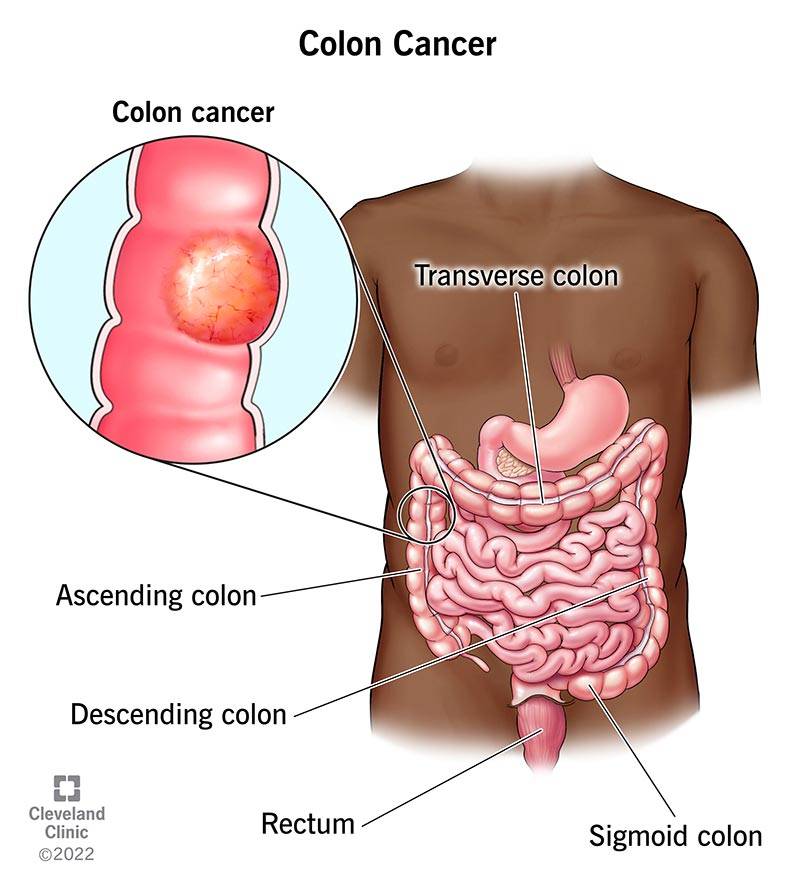How to Prevent Colorectal Cancer
Introduction:
Colorectal cancer, which affects the colon or rectum, is one of the most common types of cancer worldwide. According to the World Health Organization (WHO), colorectal cancer is the third most diagnosed cancer globally, with approximately 1.8 million new cases reported each year. However, the good news is that many cases of colorectal cancer are preventable through various lifestyle modifications and regular screenings. In this comprehensive guide, we will explore the steps individuals can take to reduce their risk of developing colorectal cancer and promote overall colorectal health.
Understanding Colorectal Cancer:
Before delving into prevention strategies, it's essential to understand what colorectal cancer is and how it develops. Colorectal cancer typically begins as a polyp, a small growth on the inner lining of the colon or rectum. Over time, some polyps can develop into cancerous tumors. While not all polyps turn cancerous, detecting and removing them early can significantly reduce the risk of colorectal cancer.
Risk Factors:
Several factors can increase an individual's risk of developing colorectal cancer. These include:
1. Age: Colorectal cancer is more common in older adults, with the majority of cases diagnosed after the age of 50.
2. Family History: Individuals with a family history of colorectal cancer or certain genetic conditions, such as familial adenomatous polyposis (FAP) or Lynch syndrome, are at higher risk.
3. Personal History: A history of inflammatory bowel diseases (IBD), such as Crohn's disease or ulcerative colitis, can increase the risk of colorectal cancer.
4. Lifestyle Factors: Unhealthy lifestyle habits, including a diet high in red and processed meats, low fiber intake, lack of physical activity, obesity, smoking, and excessive alcohol consumption, can elevate the risk.
5. Ethnicity: Certain ethnic groups, such as African Americans, have a higher incidence of colorectal cancer.
6. Diabetes: Individuals with type 2 diabetes may have an increased risk of colorectal cancer.
Preventive Measures:
While some risk factors for colorectal cancer, such as age and family history, cannot be modified, there are several proactive steps individuals can take to reduce their risk:
1. Adopt a Healthy Diet:
- Emphasize a diet rich in fruits, vegetables, whole grains, and legumes, which are high in fiber and essential nutrients.
- Limit consumption of red and processed meats, as they have been linked to an increased risk of colorectal cancer.
- Reduce intake of sugary snacks and beverages, opting for healthier alternatives.
- Maintain a balanced diet to support overall health and reduce the risk of obesity, a known risk factor for colorectal cancer.
2. Stay Physically Active:
- Engage in regular physical activity, aiming for at least 30 minutes of moderate exercise most days of the week.
- Incorporate a variety of activities, such as walking, jogging, cycling, swimming, or strength training, to promote cardiovascular health and maintain a healthy weight.
- Limit sedentary behaviors, such as prolonged sitting or screen time, by taking breaks to move throughout the day.
3. Maintain a Healthy Weight:
- Strive to achieve and maintain a healthy body weight through a combination of balanced diet and regular exercise.
- If overweight or obese, aim for gradual weight loss through lifestyle modifications, such as dietary changes and increased physical activity.
4. Quit Smoking and Limit Alcohol Consumption:
- Quit smoking, as tobacco use has been linked to an increased risk of colorectal cancer, as well as other types of cancer and chronic diseases.
- Limit alcohol consumption, as excessive intake can raise the risk of colorectal cancer. Men should aim for no more than two alcoholic drinks per day, while women should limit intake to one drink per day.
5. Get Screened Regularly:
- Follow recommended screening guidelines for colorectal cancer, which typically involve starting regular screenings at age 50 for individuals at average risk.
- Screening tests may include colonoscopy, sigmoidoscopy, fecal occult blood test (FOBT), or fecal immunochemical test (FIT).
- Individuals with a family history of colorectal cancer or other risk factors may need to start screening at an earlier age or undergo more frequent screenings.
6. Know Your Family History:
- Be aware of your family's medical history, particularly regarding colorectal cancer and other hereditary conditions.
- Inform your healthcare provider if you have a family history of colorectal cancer or if you have been diagnosed with conditions such as FAP or Lynch syndrome, as this may impact your screening recommendations.
7. Manage Chronic Conditions:
- If you have been diagnosed with conditions such as diabetes or inflammatory bowel diseases, work closely with your healthcare team to manage these conditions effectively.
- Follow prescribed treatment plans, attend regular medical appointments, and monitor your health closely.
8. Consider Genetic Testing:
- Individuals with a strong family history of colorectal cancer or certain hereditary conditions may benefit from genetic testing and counseling.
- Genetic testing can help identify inherited genetic mutations associated with an increased risk of colorectal cancer, allowing for personalized risk assessment and management.
Conclusion:
Colorectal cancer is a significant public health concern, but it is also a highly preventable and treatable disease when detected early. By adopting a healthy lifestyle, undergoing regular screenings, and being proactive about managing risk factors, individuals can significantly reduce their risk of developing colorectal cancer. It's never too early to start taking steps to protect colorectal health, so empower yourself with knowledge and make informed choices to safeguard your well-being. Remember, prevention is key, and your actions today can make a difference in your colorectal health tomorrow.




No comments yet
Be the first to share your thoughts!